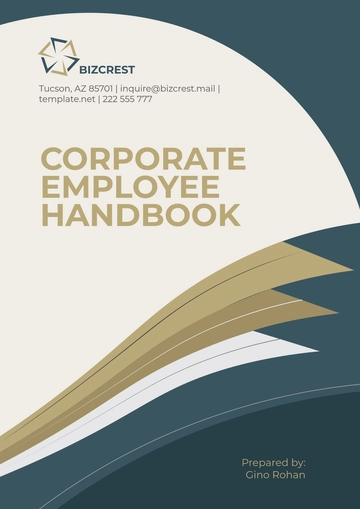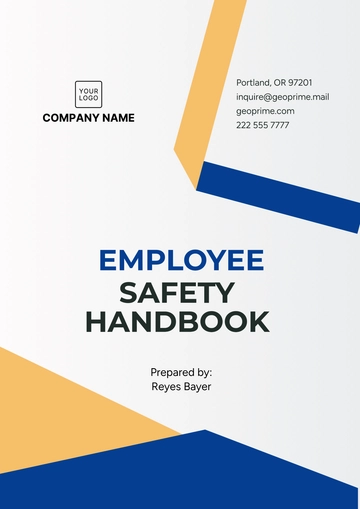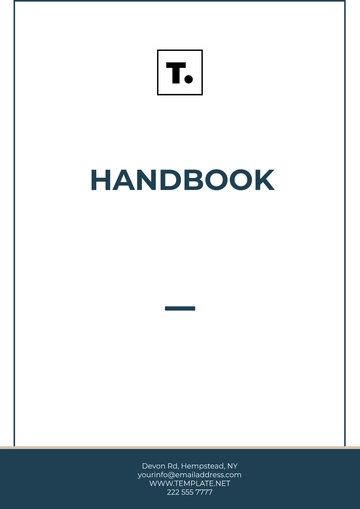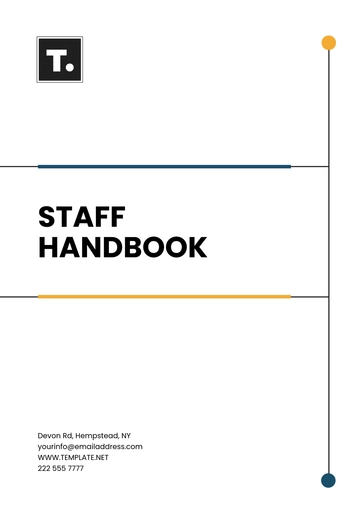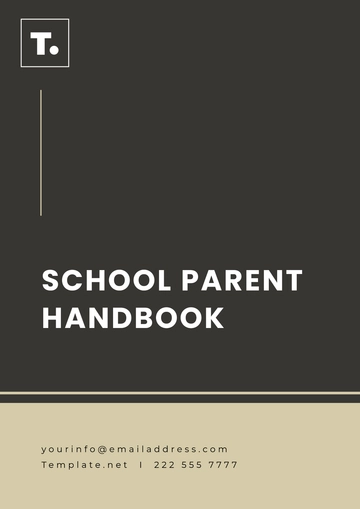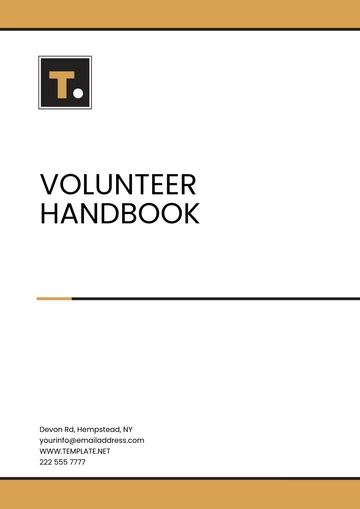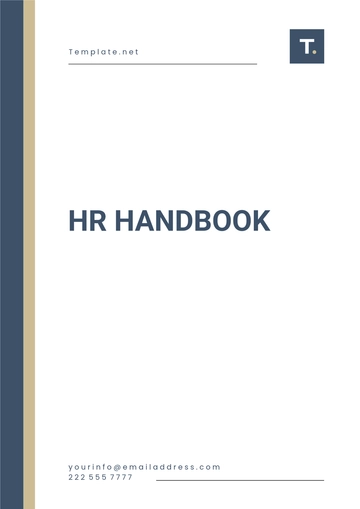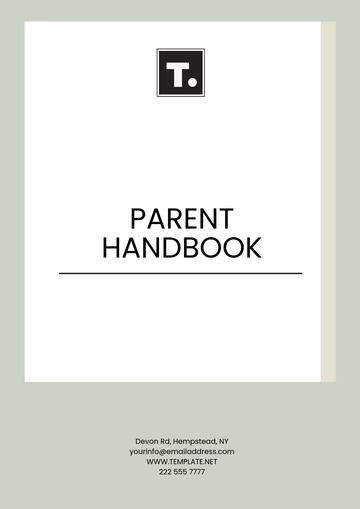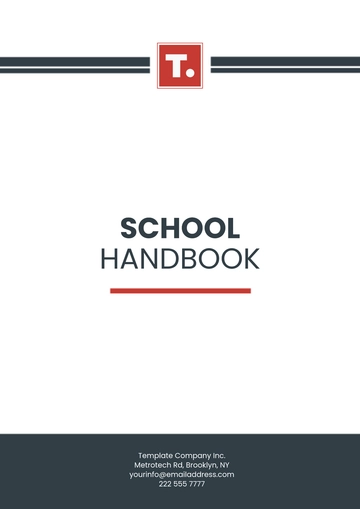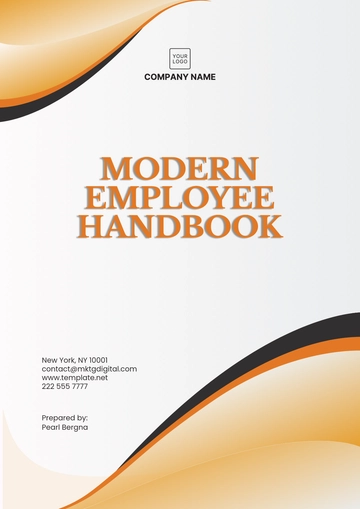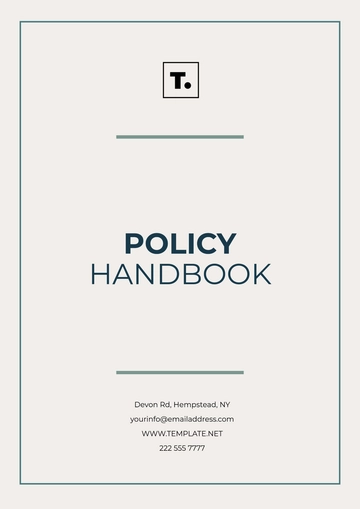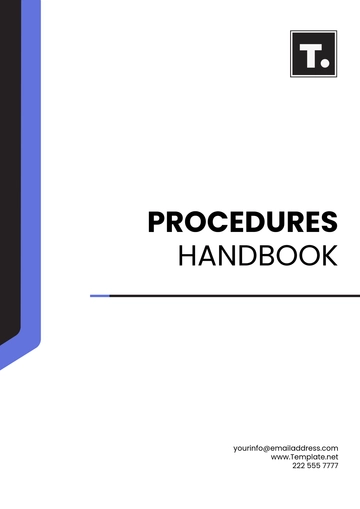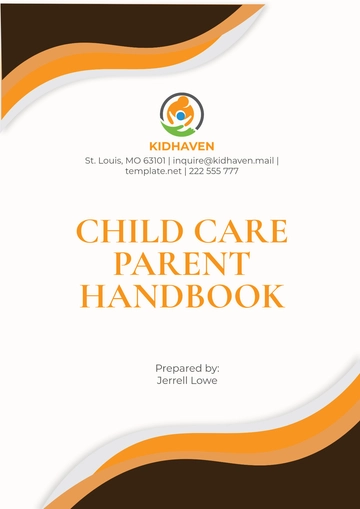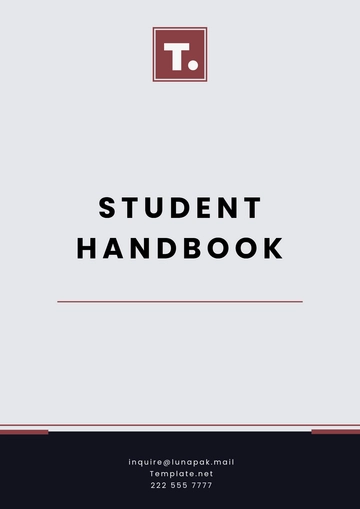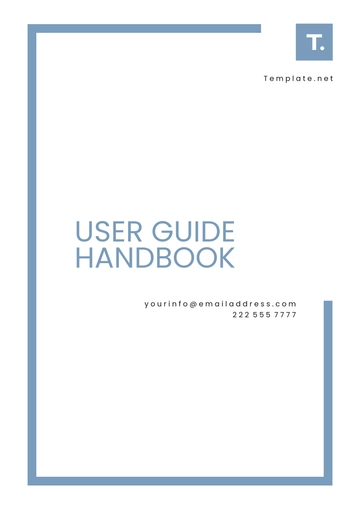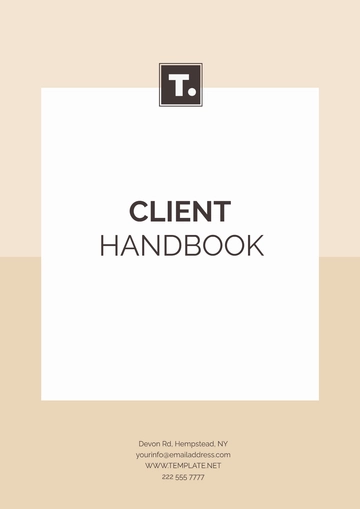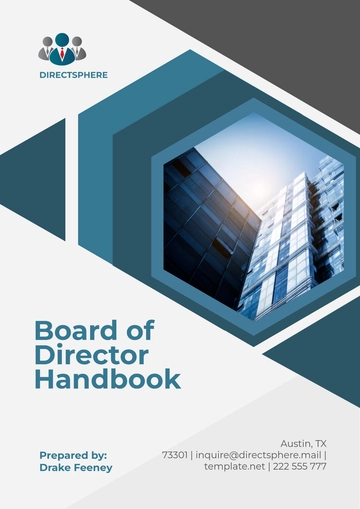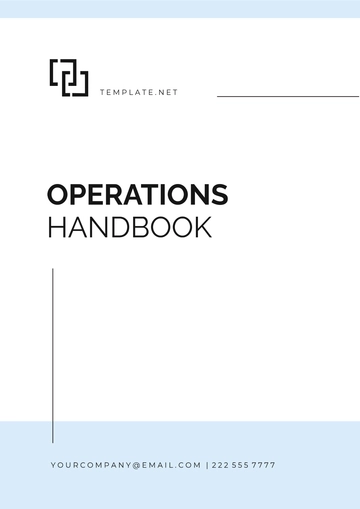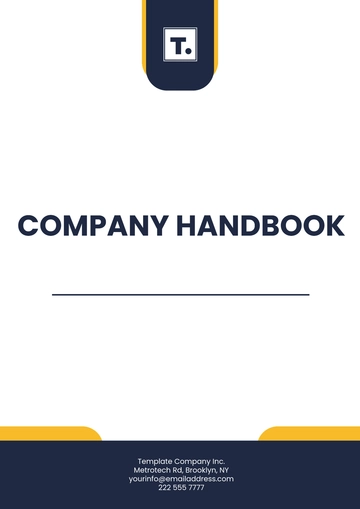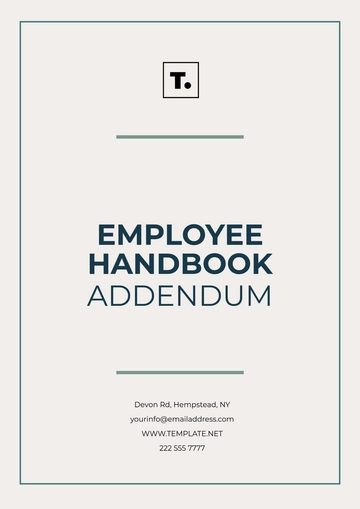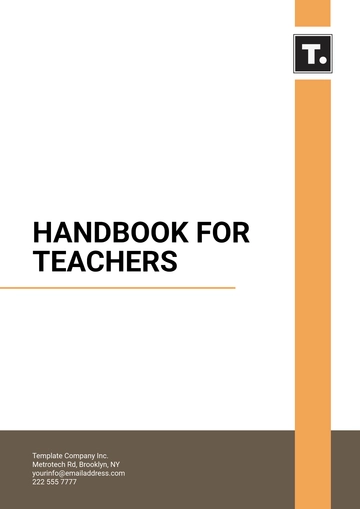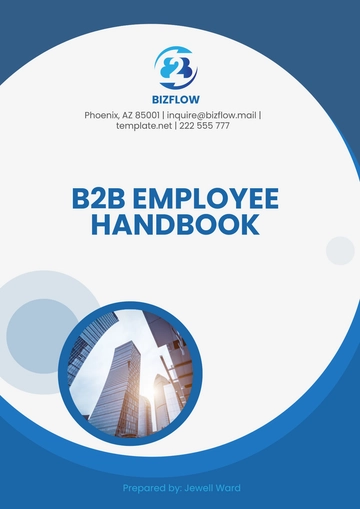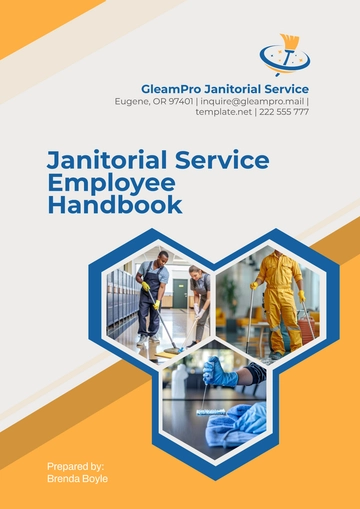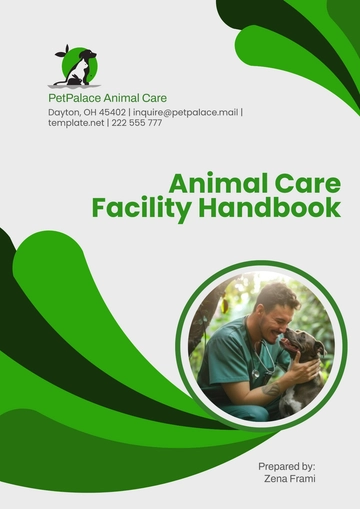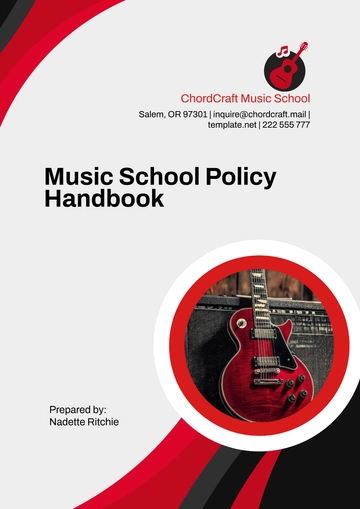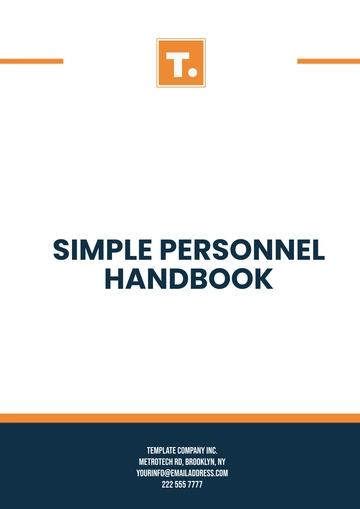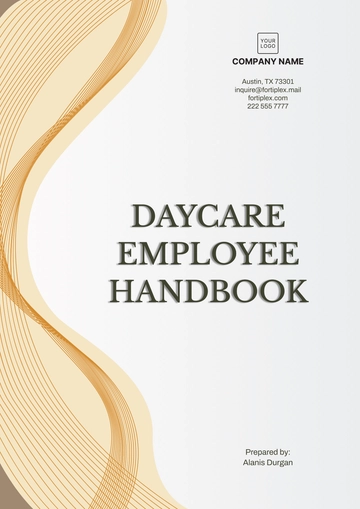Free Nursing Home Training Handbook
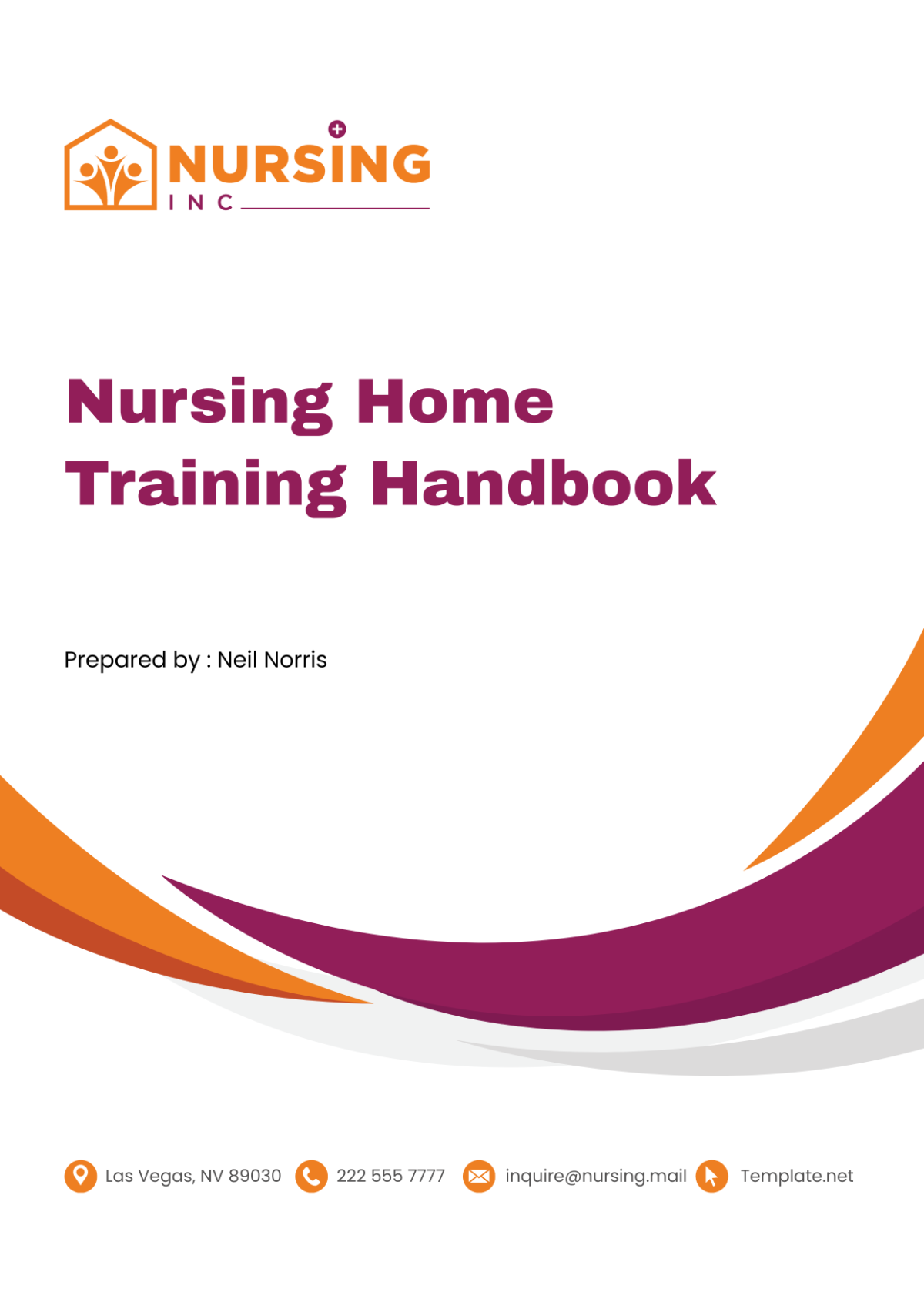
1. Introduction and Welcome
Welcome to [Your Company Name]'s Nursing Home Training Handbook. This manual is an essential tool for all our staff members, offering critical information and guidance to enhance the level of care and service we provide to our residents. From the principles of patient care to the important communication skills required in health care, we highlight everything needed for you to excel in your roles. Remember, to us, every resident is a priority, and we believe in making every moment count.
Staying true to [Your Company Name]'s mission and values is key. We strive every day to promote an environment that respects the dignity of our residents while offering them quality care. We trust that this manual will reinforce and give life to our enduring commitment to excellence.
2. Patient Care and Resident Rights
Patient care in a nursing home setting goes beyond just medical treatment; it encompasses ensuring residents' overall well-being, comfort, and dignity. Understanding and respecting resident rights are paramount to providing quality care. This section of the Nursing Home Training Handbook outlines the principles of patient care and emphasizes the importance of upholding resident rights.
2.1 Principles of Patient Care
Patient care in a nursing home requires a holistic approach that addresses physical, emotional, and social needs. Staff members should prioritize resident-centered care, respecting individual preferences and promoting independence whenever possible. Key principles include:
Providing compassionate and empathetic care.
Ensuring residents' comfort and safety.
Maintaining cleanliness and hygiene in living spaces.
Supporting residents' autonomy and decision-making.
2.2 Resident Rights
Residents of nursing homes are entitled to certain rights guaranteed by federal and state regulations. It is essential for staff members to understand and uphold these rights to ensure residents' dignity and well-being. Common resident rights include:
The right to privacy and confidentiality.
The right to participate in care planning and decision-making.
The right to be free from abuse, neglect, and exploitation.
The right to communicate freely and have access to visitors.
The right to manage personal finances and possessions.
2.3 Informed Consent
Respecting residents' autonomy involves obtaining informed consent before providing medical treatment or services. Staff members must ensure that residents understand the nature, risks, benefits, and alternatives of any proposed interventions. This includes:
Explaining procedures and treatment options in clear, understandable language.
Obtaining consent from residents or their designated decision-makers.
Documenting consent in the resident's medical record.
2.4 Confidentiality and Privacy
Maintaining confidentiality and privacy is essential to protect residents' dignity and personal information. Staff members should adhere to strict confidentiality protocols, including:
Keeping resident medical and personal information secure and accessible only to authorized personnel.
Refraining from discussing resident information in public areas.
Obtaining consent before disclosing resident information to third parties, except as required by law.
3. Safety Protocols and Emergency Procedures
Ensuring the safety of residents and staff members is a top priority in a nursing home environment. This section outlines safety protocols and emergency procedures designed to prevent accidents, respond effectively to emergencies, and promote a secure living environment for all.
Safety Protocols and Emergency Procedures
In the event of an emergency, follow these four steps to ensure the safety and well-being of residents and staff:

Assess the Situation: Quickly evaluate the nature and severity of the emergency, including any immediate threats to residents or the facility.
Activate Emergency Response: Alert appropriate personnel and initiate the facility's emergency response plan, including notifying emergency services if necessary.
Evacuate if Necessary: If evacuation is required, follow established evacuation routes and procedures, assisting residents as needed to ensure their safe relocation to designated assembly areas.
Provide Aid and Support: Once the immediate threat has been mitigated, provide medical assistance and emotional support to residents and staff members affected by the emergency. Document all actions taken and communicate updates as needed to relevant parties. Regularly review and practice emergency procedures to ensure readiness and effectiveness.
4. Regulatory Compliance and Documentation
Compliance with federal, state, and local regulations is essential for maintaining the quality of care and ensuring the safety of residents in a nursing home. This section provides guidance on regulatory requirements and documentation procedures to ensure adherence to applicable laws and standards.
4.1 Federal Regulations
Nursing homes in the United States must comply with regulations set forth by federal agencies such as the Centers for Medicare & Medicaid Services (CMS). Key federal regulations include the Nursing Home Reform Act, which establishes minimum standards for nursing home facilities, and the Conditions of Participation for Medicare and Medicaid reimbursement.
4.2 State Regulations
In addition to federal regulations, nursing homes are subject to state-specific requirements governing licensing, staffing ratios, facility operations, and quality of care. Staff members should familiarize themselves with state regulations and ensure compliance to avoid penalties or loss of licensure.
4.3 Documentation Standards
Accurate and thorough documentation is essential for maintaining compliance and demonstrating the quality of care provided to residents. Staff members must adhere to established documentation standards, including:
Recording resident assessments, care plans, and progress notes in a timely manner.
Documenting medication administration, treatments, and interventions according to facility policies and procedures.
Maintaining resident medical records in a secure and confidential manner, ensuring compliance with privacy regulations such as the Health Insurance Portability and Accountability Act (HIPAA).
4.4 Reporting Procedures
Prompt reporting of incidents, complaints, and adverse events is critical for addressing issues promptly and ensuring resident safety. Staff members should be aware of reporting requirements and procedures for documenting and reporting:
Incidents of abuse, neglect, or exploitation.
Adverse reactions to medication or treatment.
Facility hazards or environmental concerns.
Complaints from residents or family members.
5. Communication and Interpersonal Skills
Effective communication is fundamental to providing quality care and fostering positive relationships with residents, families, and colleagues in a nursing home environment. Staff members must possess strong interpersonal skills to effectively convey information, address concerns, and provide emotional support.
Clear and empathetic communication with residents is essential for building trust and understanding their needs and preferences. Staff should actively listen to residents, acknowledge their feelings, and communicate in a respectful and compassionate manner. Additionally, staff should encourage open dialogue and involve residents in decision-making regarding their care whenever possible.
Interpersonal skills are also crucial for collaborating with colleagues and working effectively as a team. Staff members should communicate openly, share information, and support one another to ensure coordinated and efficient care delivery. By fostering a culture of mutual respect and effective communication, nursing home staff can enhance resident satisfaction and promote a positive work environment. Regular training and opportunities for skill development can help staff continually improve their communication and interpersonal skills.
6. Clinical Skills and Procedures
Proficiency in clinical skills and procedures is essential for providing safe and effective care to residents in a nursing home setting. This section of the handbook outlines key clinical skills and procedures that staff members must be competent in to meet residents' medical and healthcare needs.
6.1 Medication Administration
Staff members responsible for administering medications must be knowledgeable about medication safety practices, dosage calculations, and proper administration techniques. Training should cover medication storage, documentation, and identifying and managing adverse reactions.
6.2 Wound Care
Proper wound care is critical for preventing infections and promoting healing in residents with wounds. Staff members should receive training on wound assessment, cleaning, dressing changes, and monitoring for signs of infection or complications.
6.3 Infection Control Practices
Preventing the spread of infections is essential for protecting residents and staff members. Training should cover proper hand hygiene, use of personal protective equipment, isolation precautions, and cleaning and disinfection protocols.
6.4 Mobility Assistance
Many residents in nursing homes require assistance with mobility to maintain their independence and prevent falls. Staff members should be trained in safe transfer techniques, use of mobility aids, and strategies for promoting mobility and preventing immobility-related complications.
6.5 Therapeutic Activities
Engaging residents in therapeutic activities can improve their quality of life and mental well-being. Staff members should be trained in facilitating activities such as exercise programs, recreational activities, and socialization opportunities tailored to residents' interests and abilities.
6.6 Emergency Response Procedures
Staff members should be prepared to respond quickly and effectively to medical emergencies and other urgent situations. Training should cover emergency assessment, CPR and first aid techniques, and evacuation procedures to ensure the safety of residents and staff.
7. Professional Development and Continuing Education
Continuous learning and professional growth are essential for nursing home staff to stay updated on best practices, regulations, and advancements in healthcare. This section emphasizes the importance of ongoing professional development and provides resources for staff to expand their knowledge and skills.
7.1 Training Programs and Workshops
Offering regular training programs and workshops allows staff members to enhance their clinical skills, communication techniques, and knowledge of regulatory requirements.
7.2 Certification and Licensure
Encouraging staff to pursue relevant certifications and licensure demonstrates a commitment to excellence in care and provides opportunities for career advancement.
7.3 Continuing Education Opportunities
Providing access to online courses, webinars, and conferences enables staff to stay current on industry trends and evidence-based practices.
In conclusion, this Nursing Home Training Handbook serves as a comprehensive guide for staff members to uphold the highest standards of care, safety, and professionalism in their roles. By adhering to the principles and practices outlined in this handbook and embracing opportunities for ongoing learning and development, nursing home staff can fulfill their commitment to providing exceptional care to residents and promoting their overall well-being.
- 100% Customizable, free editor
- Access 1 Million+ Templates, photo’s & graphics
- Download or share as a template
- Click and replace photos, graphics, text, backgrounds
- Resize, crop, AI write & more
- Access advanced editor
Empower your staff with the Nursing Home Training Handbook from Template.net. This editable and customizable template provides comprehensive training materials tailored to the unique needs of nursing home care, including procedures, safety protocols, and resident interaction guidelines. Editable in our Ai Editor Tool, it's crucial for equipping new hires and existing employees with the knowledge and skills necessary for delivering high-quality care, promoting a supportive environment, and ensuring the well-being of all residents.
